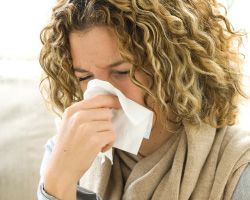Treating the flu

If you get the flu, there are many remedies to help you feel better. Antiviral medications, over-the-counter drugs and home remedies can help relieve your symptoms.
Having the flu is no fun, but there are things you can do to feel better. From home remedies to prescription and over-the-counter drugs, there are a variety of methods to help ease your symptoms.
Antiviral medicines
The U.S. Food and Drug Administration has approved several antiviral medications to treat seasonal influenza. These drugs, which you can get with a prescription from your doctor, can lessen the symptoms and duration of the flu.
Antiviral medicines work by stopping the flu virus from reproducing in your body. But they need to be taken within two days of the start of symptoms to be the most effective.
Your doctor can decide if you should take an antiviral drug and, if so, which one will work best for you.
Antiviral drugs should be given to people who are at high risk for complications from the flu or who are very sick and need to be hospitalized, according to the Centers for Disease Control and Prevention (CDC). This includes older people; young children; pregnant women; American Indians and Alaska Natives; and people with weak immune systems or chronic health conditions, such as asthma or heart disease.
Home remedies
Some of the easiest ways to ease flu symptoms don't require a prescription. Home remedies can go a long way toward helping you feel better even if you do take an antiviral medicine. For example:
- To ease a sore throat, try gargling with warm salt water a few times a day.
- For a stuffy nose, use saline nose drops to loosen mucus and moisten the skin in your nose.
- Drink plenty of fluids, such as water and clear soup. This will keep you hydrated and help loosen mucus.
- Avoid things that could worsen your symptoms, such as tobacco smoke and alcohol.
Staying home from work or school and getting plenty of rest are also important when you're not feeling well. If you try to keep up with your normal activities, you could delay your recovery—especially if you have a fever. Resting helps your body fight infection. Staying home will also help keep you from spreading germs to others.
Over-the-counter medicines
While over-the-counter medicines can't cure the flu, they can help relieve many of the symptoms. But read the labels carefully. Children and teenagers shouldn't take anything with aspirin in it—especially if they have a fever. Doing so could cause Reye's syndrome.
Some common ingredients in over-the-counter flu medicines include:
- Analgesics, such as acetaminophen, aspirin, ibuprofen, ketoprofen and naproxen. Analgesics can relieve the aches and pains associated with the flu and reduce fever.
- Cough suppressants. Don't take these if you are coughing up mucus. Children under 6 years of age shouldn't take any over-the-counter medicines for cough and cold, according to the American Academy of Family Physicians.
- Expectorants. These help by thinning mucus, making it easier to cough it up.
- Decongestant nasal sprays. Decongestants shrink nasal passages and relieve congestion. Don't take them for more than a few days. Young children shouldn't use nasal sprays.
When to call the doctor
Most people get over the flu without any problems, but occasionally the flu can turn into something more serious. According to CDC, adults should seek urgent medical attention if they have symptoms such as:
- Trouble breathing or shortness of breath.
- Pain or pressure in the chest or abdomen.
- Sudden dizziness.
- Confusion.
- Severe or persistent vomiting.
Children need urgent medical attention if they have symptoms such as:
- Fast breathing or trouble breathing.
- Bluish skin color.
- Not waking up or interacting.
- Not drinking enough fluids.
- Being so irritable that they don't want to be held.
- Fever with a rash.
Both adults and children should seek urgent medical attention if symptoms improve but then return with a fever and a worsened cough.
Reviewed 10/22/2024
